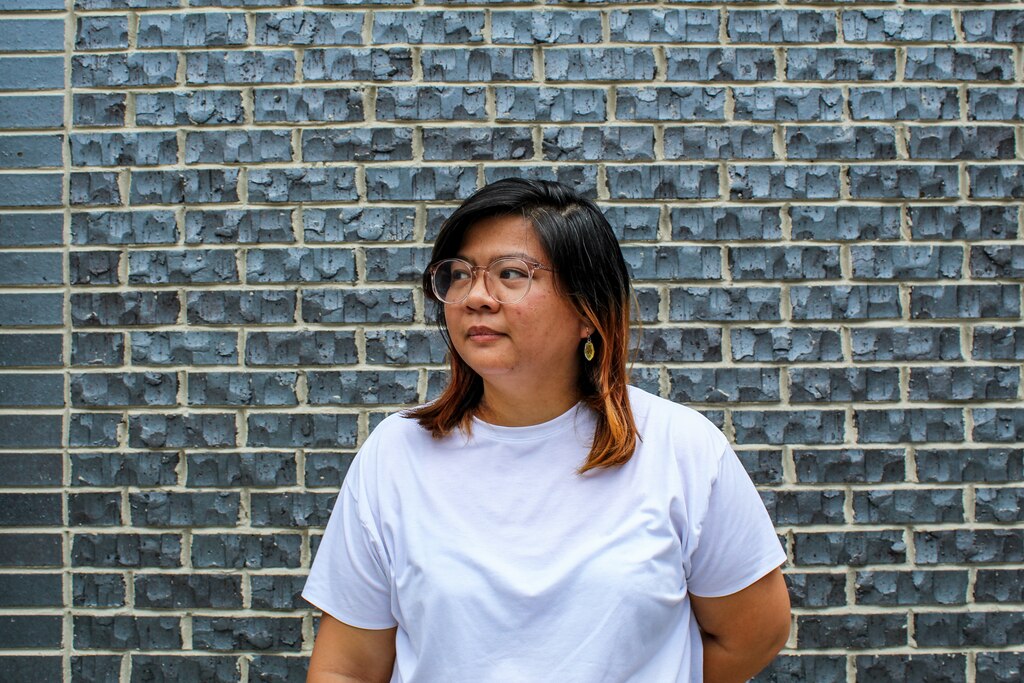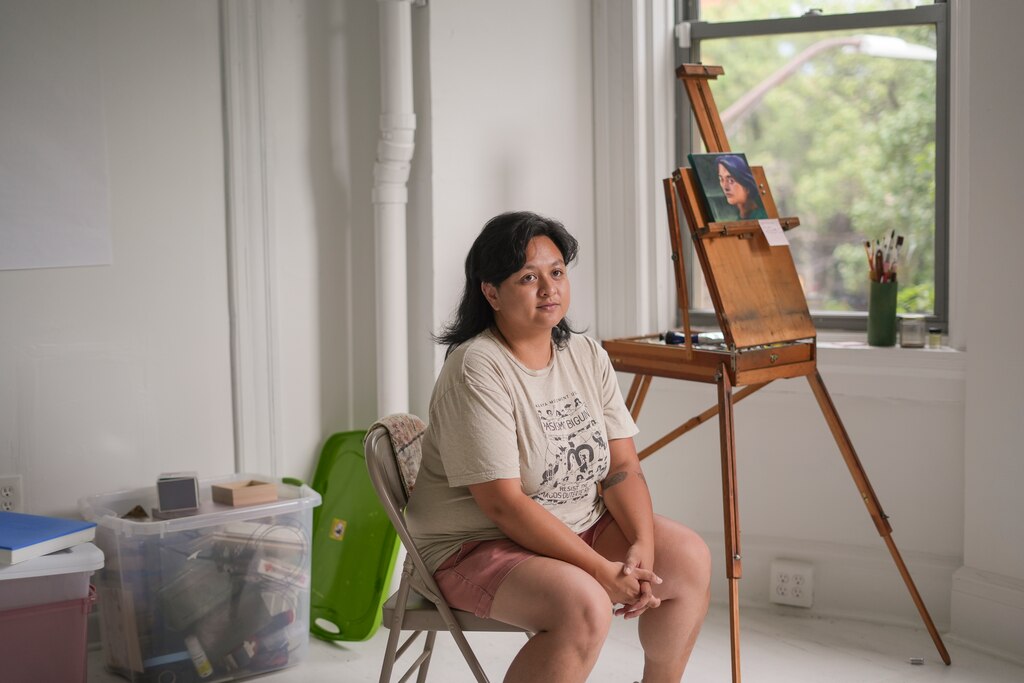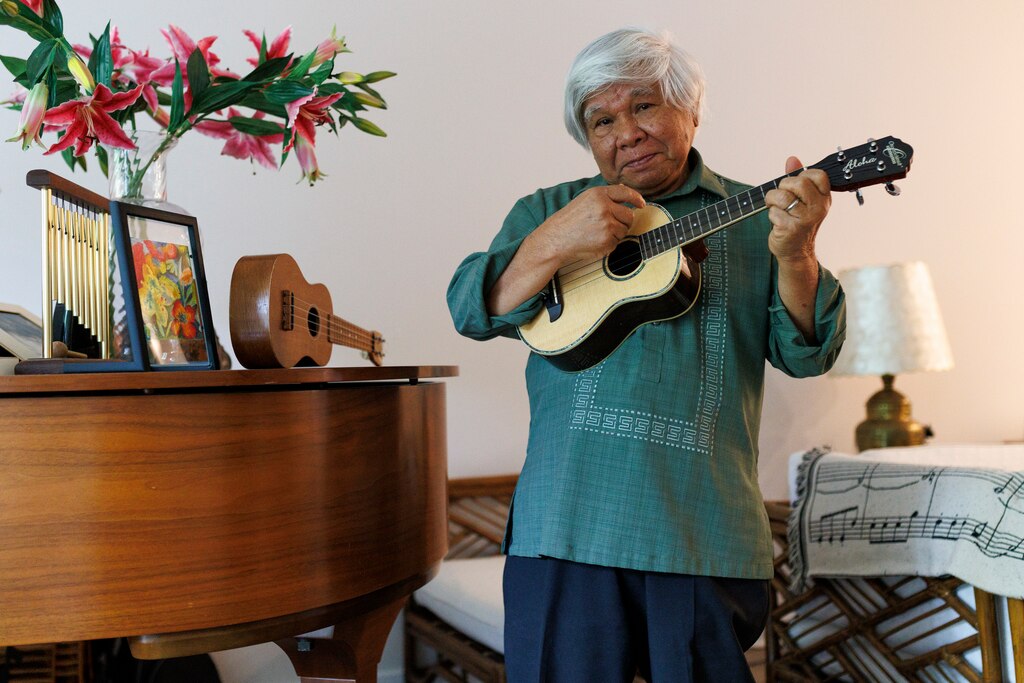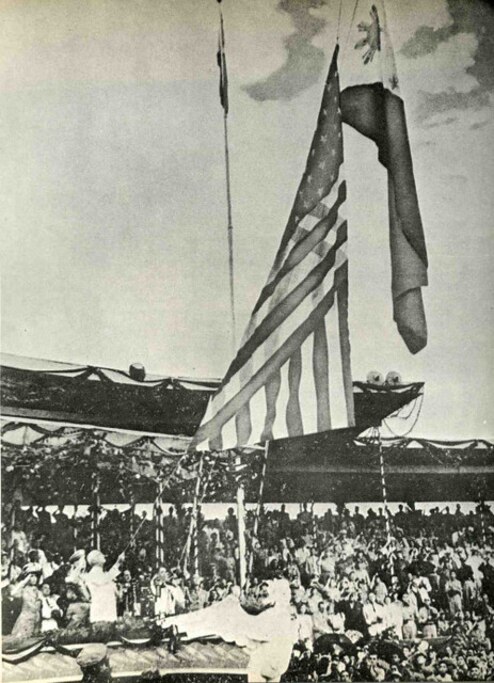For many Americans, the Fourth of July is a day of patriotism and barbecues and a night of fireworks and fun. But Americans aren’t the only ones who commemorate the Fourth of July.
The day is also Philippine Republic Day, or Philippine–American Friendship Day.
Mencie Hairston, 76, celebrates the Fourth of July with her family by hosting a potluck. She cooks traditional Filipino dishes she grew up with in the Philippines, and her husband’s family brings more American staples.
Before the COVID-19 pandemic, Hairston, one of the founders of Mabuhay Inc., a nonprofit to connect the Filipino community in the Maryland area, used to lay a wreath at Peace Cross in Bladensburg to commemorate soldiers from both countries.
The Baltimore Banner thanks its sponsors. Become one.
Though they haven’t done it since, Hairston hopes to pick the tradition back up to celebrate friendship in the coming years.
But some in the Filipino community in Maryland have mixed feelings about how to celebrate amid a sweeping immigration crackdown by the Trump administration. Growing economic tensions between the U.S. and China have also put pressure on the Philippines, which is still a military hub for the U.S.

Inez Crisostomo, 35, moved to Baltimore with her husband and young daughter from the Philippines three years ago on a temporary visa to be a math teacher. Though they have all the necessary documents to stay in the country, they are still concerned.
“We feel safe with our community and with our friends but it’s just the news and knowing about all the ICE raids and stuff that has been anxiety inducing,” said Crisostomo. “That aspect has been difficult, not knowing what can happen or that anything can happen.”
Some in the community have decided to forgo the fireworks and will instead use the day as a moment of reflection.
The Baltimore Banner thanks its sponsors. Become one.
Chris Pasion, 26, who was born and raised in the U.S. to Filipino immigrant parents, plans to participate in a get-together with the Baltimore chapter of Malaya Movement, a social group that aims to advance democracy and human rights in the Philippines. She said the group will hold a conversation about what it means to be sovereign.
“It’s still a barbecue,” said Pasion, who lives in Baltimore. “Food will always be there, but we’re hoping to have almost like a sobering conversation about that.”


Many Filipinos move to the U.S. to find better economic opportunities for their families, feeling a sense of obligation to send money home, according to Gem Daus, a professor of Filipino American history at the University of Maryland.
Filipino immigrants predominantly find jobs as nurses, teachers or domestic workers in the U.S., but the professional network for immigrants has expanded, said Daus, who is a board member for the Filipino American National Historical Society.
In Maryland, the community largely resides in the counties surrounding Baltimore and Washington, D.C. In recent years, the Filipino population has been declining slightly in the state, according to U.S. Census data, and makes up a little less than 1% of the population.
The Baltimore Banner thanks its sponsors. Become one.
The Philippines was a Spanish colony from 1565 until 1898, when Filipino revolutionaries overthrew Spanish rule with the help of the U.S., which then made it an American colony.

The U.S. established the Commonwealth of the Philippines in 1935 and the country gained its independence on July 4, 1946. That date was celebrated as Independence Day until 1963, when President Diosdado Macapagal moved it to June 12 to honor the 1898 declaration of independence from Spain.
“Even if we changed the date of our Independence Day from July 4 to June 12, Filipino Americans here in America continued to celebrate July 4 and called it U.S.-Filipino Friendship Day,” said Jon Melegrito, 81, who lives in Clarksburg.
Melegrito is a U.S. citizen, but was born in the Philippines and moved to America with his family as a young man. His family continues to celebrate with picnics and community get-togethers, but this year, he said, feels different.
“We hope that we will continue to celebrate this diversity that is so crucial in really making America the kind of country that, you know, gives hope to people all over the world,” said Melegrito.
The Baltimore Banner thanks its sponsors. Become one.
Crisostomo said her family plans to return to the Philippines, a move that will finally bring them peace of mind and freedom.
"America offers opportunities that you don’t necessarily get in the Philippines," she said. “Our move here made us realize how big the world is."
Banner data intern Patrick McCaslin contributed to this report.





Comments
Welcome to The Banner's subscriber-only commenting community. Please review our community guidelines.